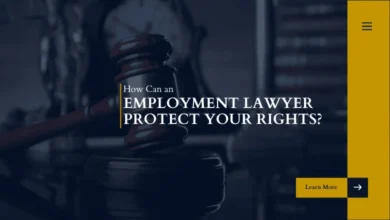What To Do If Your Landlord Doesn’t Take Their Responsibilities Seriously

Renting a home comes with its share of responsibilities, and it’s not just the tenants who are accountable. Landlords, too, have a set of duties to ensure their tenants’ well-being and the property’s proper maintenance. Unfortunately, there are instances where landlords neglect their responsibilities, leaving tenants frustrated and seeking solutions. If you find yourself in such a situation, here’s a guide on what to do if your landlord doesn’t take their responsibilities seriously.
Document the Issues
The first step is to meticulously document all the issues you’re facing in your rental property. This includes maintenance problems, safety concerns, or any other breaches of the lease agreement. Take photographs, videos, and keep a written diary of the dates and times when issues occurred. This documentation will serve as crucial evidence if legal action becomes necessary.
Communicate Clearly
Open communication is key when dealing with a negligent landlord. Write a formal letter or email outlining your documented issues and request prompt resolution. Be sure to reference the relevant clauses in your lease agreement that highlight the landlord’s responsibilities. Keep copies of all correspondence for future reference.
Know Your Rights
Familiarise yourself with tenant rights and local housing laws. Different jurisdictions have varying regulations regarding landlord responsibilities. Understanding your rights will empower you to assert your demands more effectively. Local housing authorities or tenant unions can provide valuable information and support.
Request an Inspection
If the issues persist, consider requesting a housing inspection from your local authorities. Many areas have housing or building code enforcement departments that can inspect your property for violations. If violations are found, your landlord may be legally obligated to make the necessary repairs within a specified timeframe.
Withhold Rent (With Caution)
In some jurisdictions, tenants have the right to withhold rent if the property is uninhabitable due to the landlord’s negligence. However, this should be done cautiously and in compliance with local laws. Consult with a legal professional or tenant rights organisation before taking this step, as withholding rent without proper justification may lead to legal consequences.
Legal Action
If all else fails, legal action may be necessary. Consult with a legal team specialising in landlord-tenant law to explore your options. A solicitor will be able to advise you if you are wondering how much compensation you can get for housing disrepair and guide you through the process. Small claims court may be an option for seeking compensation for damages or unpaid expenses resulting from the landlord’s negligence. Remember to provide the court with your collected documentation to strengthen your case.
Seek Mediation
Mediation can be a less adversarial alternative to legal action. Many communities offer landlord-tenant mediation services to help resolve disputes amicably. A neutral third party can facilitate communication between you and your landlord, working towards a mutually acceptable resolution.
Dealing with a landlord who doesn’t take their responsibilities seriously can be a challenging and frustrating experience. Whether through mediation, legal action, or other means, it’s essential to stand up for your rights as a tenant and ensure that your living conditions meet the standards outlined in your lease agreement and local housing laws.
Explore more insights and discoveries – check out for a deeper dive into the world of possibilities.






